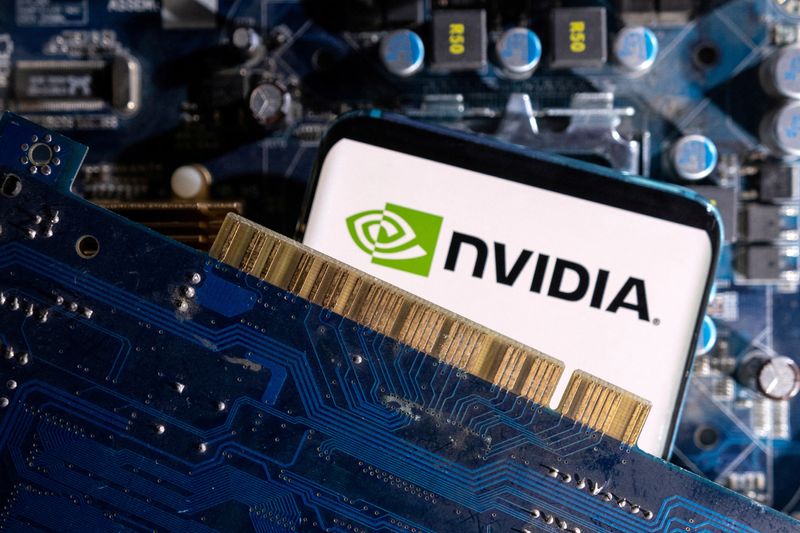Gold prices slid below $4,000/oz amid profit-taking on Gaza ceasefire
During the whirlwind AI boom over the past nearly two years, when market watchers think of AI servers, they think of NVIDIA (NASDAQ:NVDA) and Super Micro Computer (NASDAQ:SMCI). The two have been tied at the hip. NVIDIA makes the AI chips, and Super Micro makes the AI servers. Since ChatGPT took the world by storm on November 30, 2022, and the AI race started, NVIDIA’s stock has been up an astonishing 760%, while Super Micro’s stock has been up more than 1200% at its peak. Now, one company is embroiled in an accounting scandal, and the other is trying to distance themselves from the situation.
On August 27, 2024, short-selling-focused research firm Hindenburg Research issued a scathing report about Super Micro, alleging corporate maleficence, channel stuffing, related party transactions, selling products to bad actors like Russia, and shoddy workmanship. According to Hindenburg, Super Micro re-hired some of the same top executives charged when the company was hit by SEC accounting violations in 2020, which was later settled. Further, related party questions have been raised about suppliers Ablecom and Compuware. CEO Charles Liang’s brothers control the two suppliers, and Liang and his wife partly own Ablecom. Exports of Super Micro’s high-tech components to Russia are up three-fold since Russia's invasion of Ukraine in February 2022, Hindenburg also found. Meanwhile, competitors like Dell (NYSE:DELL) and others have been winning orders due to quality concerns at Super Micro.
The initial shock of the late August Hindenburg report sent Super Micro’s stock immediately down 19%, but matters have only worsened.
First, just one day after the Hindenburg report, the company delayed its 10-K filing for fiscal year 2024, which later triggered a non-compliance letter from the Nasdaq stock exchange warning of a possible delisting. This week, however, the situation took an ugly turn after Super Micro’s auditor, Ernst & Young, resigned, adding fuel to the corporate maleficence fire. In late July 2024, the accounting firm raised “concerns about several matters relating to governance, transparency and completeness of communications to EY, and other matters pertaining to the Company’s internal control over financial reporting…” Additional information received from the accounting firm “raised questions, including about whether the Company demonstrates a commitment to integrity and ethical values consistent with Principle 1 of the COSO Framework, about the ability and willingness of the Audit Committee and overall Board to demonstrate and act as an oversight body that is independent of the CEO and other members of management in accordance with Principle 2 of the COSO Framework, and whether EY could rely on representations from certain members of management and from the Audit Committee.” In the Resignation Letter, the accounting firm stated, in part: “we are resigning due to information that has recently come to our attention which has led us to no longer be able to rely on management's and the Audit Committee’s representations and to be unwilling to be associated with the financial statements prepared by management, and after concluding we can no longer provide the Audit Services in accordance with applicable law or professional obligations.”
Shares of Super Micro fell another 43% this week following the auditor's resignation. The stock is now down 50% from the Hindenburg short report and 77% from its March 2024 peak.
Meanwhile, NVIDIA, has largely been unfazed by the Super Micro situation until cracks started emerging this week after the auditor’s resignation. NVIDIA's stock is down nearly 4% since the Super Micro auditor's resignation, including Thursday’s 4.7% sell-off.
Wall Street analysts are now asking if NVIDIA can separate themselves from the Super Micro situation.
Mizuho desk analyst Jordan Klein thinks NVIDIA is at risk of missing its own guidance if the Super Micro situation worsens and they cannot fund the business. He highlights that Super Micro operates with negative working capital and requires a lot of cash and funding to purchase large volumes of GPUs and liquid cooling products to build multi-million dollar NVL72 Blackwell rack systems. “How do you raise money when you have no auditor or are unable to file financial statements?” Klein asks about Super Micro.
The analyst thinks NVIDIA will likely start moving most of their GPU supply away from Super Micro until they get more clarity on the situation. The analyst highlighted Super Micro's competitor, Dell, as a likely beneficiary if NVIDIA moves its supply away from Super Micro.
While moving GPU supply away from Super Micro seems like a plausible mid-term solution for NVIDIA, it is unclear if a near-term disruption or possible delayed payments from Super Micro could impact NVIDIA's short-term financial results.
Despite Super Micro's woes, overall AI demand and the race to Artificial General Intelligence don’t appear to be slowing down, and NVIDIA is still seen as getting the lion's share. BofA Securities, for example, continues to expect AI accelerator demand to grow to $280 billion by 2027 and more than $400 billion over time, with Nvidia garnering 75% of the market share despite increased competition.
NVIDIA, for its part, is not commenting on the Super Micro matter.
“We’ll decline comment,” an NVIDIA spokesperson said when reached by Investing.com for comment about Super Micro.
Despite not publicly speaking about the Super Micro situation, management's actions show that NVIDIA is quietly distancing itself from Super Micro. In May 2024, as noted by Hindenburg, NVIDIA CEO Jensen Huang publicly endorsed Super Micro competitor Dell. “Nobody is better at building end-to-end systems of very large scale for the enterprise than Dell,” Huang said.
It remains to be seen whether the Super Micro debacle impacts NVIDIA, but the auditor situation has raised the stakes, and customers are likely asking questions. Now investors are, too.
